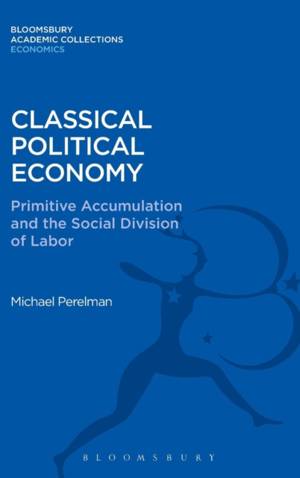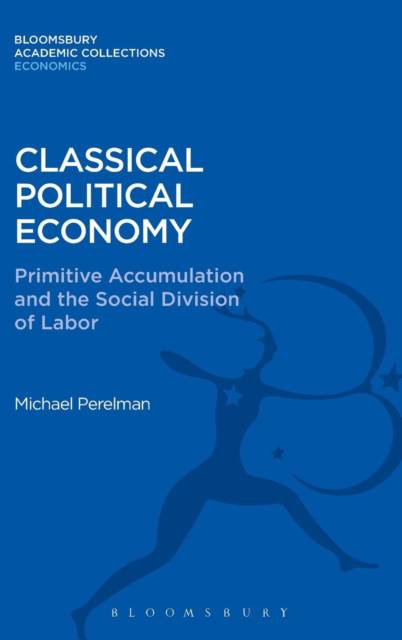
- Afhalen na 1 uur in een winkel met voorraad
- Gratis thuislevering in België vanaf € 30
- Ruim aanbod met 7 miljoen producten
- Afhalen na 1 uur in een winkel met voorraad
- Gratis thuislevering in België vanaf € 30
- Ruim aanbod met 7 miljoen producten
Zoeken
Classical Political Economy
Primitive Accumulation and the Social Division of Labor
Michael Perelman
€ 322,45
+ 644 punten
Omschrijving
Classical Political Economy addresses the question of what determines the social division of labour, the division of society into independent firms and industries and develops the theoretical implications of primitive accumulation. It also offers a significantly different interpretation of classical political economy, demonstrating that this school of thought supported the process of primitive accumulation.
Classical political economy presents an imposing facade. For more than two centuries, the accepted doctrine dictates that a market generates forces that provide the most efficient method for organising production. This laissez faire approach is an ideology that gives capital absolute freedom of action, and yet called for intervention to coerce people to do things that they would not otherwise do. Classical political economy therefore encouraged policies that would hinder people's ability to produce for their own needs.
Michael Perelman, however, in this innovative take on the subject, seeks to challenge the ideologies that would allow things to continue in this line unchecked.
Classical political economy presents an imposing facade. For more than two centuries, the accepted doctrine dictates that a market generates forces that provide the most efficient method for organising production. This laissez faire approach is an ideology that gives capital absolute freedom of action, and yet called for intervention to coerce people to do things that they would not otherwise do. Classical political economy therefore encouraged policies that would hinder people's ability to produce for their own needs.
Michael Perelman, however, in this innovative take on the subject, seeks to challenge the ideologies that would allow things to continue in this line unchecked.
Specificaties
Betrokkenen
- Auteur(s):
- Uitgeverij:
Inhoud
- Aantal bladzijden:
- 272
- Taal:
- Engels
- Reeks:
Eigenschappen
- Productcode (EAN):
- 9781472514417
- Verschijningsdatum:
- 9/01/2014
- Uitvoering:
- Hardcover
- Formaat:
- Genaaid
- Afmetingen:
- 156 mm x 234 mm
- Gewicht:
- 576 g

Alleen bij Standaard Boekhandel
+ 644 punten op je klantenkaart van Standaard Boekhandel
Beoordelingen
We publiceren alleen reviews die voldoen aan de voorwaarden voor reviews. Bekijk onze voorwaarden voor reviews.







